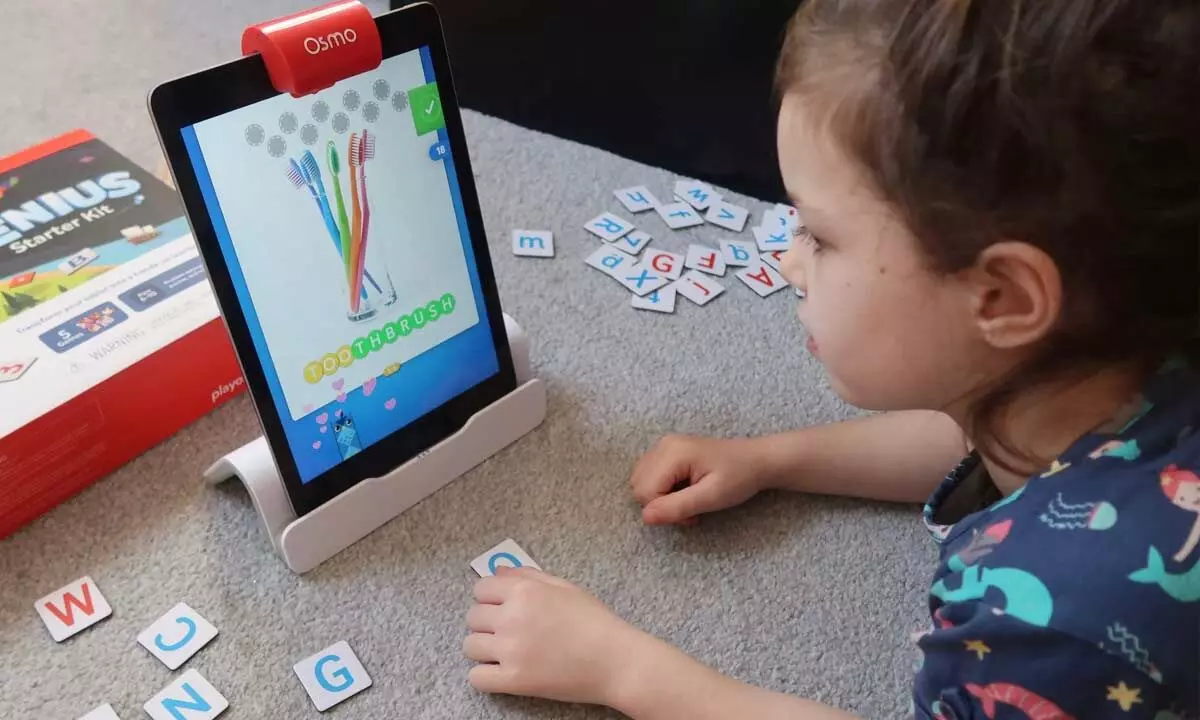Live
- Tribal leader Vaba Yogi nominated as DVMC member
- Ola Electric expands network
- NRI deposits soar $11.9 bn in 7 mths
- Positive outlook on FDI inflows in 2025
- EY forecasts 6.5% GDP growth for FY25
- Chicco opens new store
- DPIIT-recognised startups over 1.57 lakh
- Gunfight between armed groups in Imphal village
- Road blockade in Pak: 100 kids die awaiting aid
- Will develop constituency in every aspect: Bojju Patel
Just In
Technology in early education: Shaping the success of next generation


Technology in early education: Shaping the success of next generation
The use of technology in early education has the power to influence the success of the following generation. We can create a learning environment that meets the needs of our modern-day learners and prepares them for future success by balancing technology and traditional teaching methods.
Technology has become an essential part of our daily lives, including education, in today’s world. Using technology in early education is quickly becoming more and more popular and for good reason. The use of technology has a big impact on how young children learn and interact with their surroundings. Let’s examine a few of the ways that technology is influencing the success of the coming generation.
One of the most important benefits of technology in early education is that it allows children to fine-tune their motor skills and hand-eye coordination. Children are encouraged to engage in hand-eye coordination activities such as dragging, dropping, and tapping objects when they use digital devices such as tablets, laptops, and interactive whiteboards. These activities aid in the development of motor skills and hand-eye coordination in children.
Children learn best when they are having fun while learning. Early childhood education uses technology to make learning more enjoyable for children. Children can learn new ideas and skills in an enjoyable and engrossing way with the help of interactive digital games, educational apps, and online learning platforms. In turn, kids are more likely to remember what they learn and remain motivated to do their best.
Collaboration among children is encouraged by technology in early education. Group activities and collaborative learning can be done using digital tools like tablets and interactive whiteboards. Children can collaborate on a project, exchange ideas, and benefit from one another’s experiences. Children learn to work in a team and communicate effectively through collaborative learning, two life skills that are crucial for success.
Early education technology promotes play-based learning. Children enjoy playing, and play-based learning is an effective way to impart new knowledge and abilities to them. They can participate in play-based learning activities that make learning interesting and fun with the help of digital games and interactive learning resources. Critical thinking, problem-solving, and creativity skills can be effectively taught to kids through play-based learning.
Children’s social skills can be emphasized and enhanced through the use of technology in early education. Social skills like sharing, taking turns, and showing respect for others can be taught to kids using interactive learning tools, educational apps, and online learning environments. Forging enduring relationships with others and achieving success in the future, these abilities are crucial.
The use of technology in early education has the power to influence the success of the following generation. We can create a learning environment that meets the needs of our modern-day learners and prepares them for future success by balancing technology and traditional teaching methods.
(The author is a Co-Founder&CEO
at Makoons Play School)

© 2024 Hyderabad Media House Limited/The Hans India. All rights reserved. Powered by hocalwire.com






